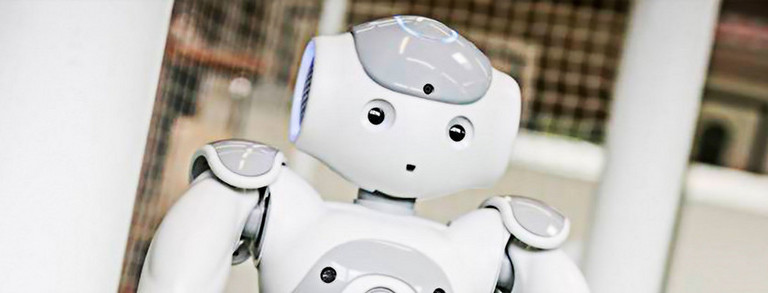Ignorance In the Coronavirus Crisis – How Hospitals Handle It
- Research
- Top News

(Un)certainty and (lack of) knowledge go hand in hand
This presupposes that we recognize and are aware that we do not know something. Wilkesmann refers to this as “recognized ignorance”. She distinguishes four phases in which ignorance and uncertainty interact: At the beginning of their careers, still inexperienced doctors find themselves in a phase of justified uncertainty. It is clear to everyone that there is still a lot that they cannot possibly know yet and that their decisions often have to be sanctioned by experienced colleagues. Too much positive feedback in this phase can lead to budding doctors feeling too confident and sometimes making mistakes because they overestimate themselves. “We call this unjustified certainty,” explains Wilkesmann. Both phases, justified uncertainty and unjustified certainty, can also be transposed to the current handling of ignorance in the coronavirus crisis: At the beginning of the pandemic, there was a great deal of ignorance and a justified uncertainty due to the novel nature of the virus.
“Due to the decreasing reproduction rate, we might possibly proceed now to the phase of unjustified certainty. Ignorance is often underestimated in this phase and knowledge ignored that actually already exists. This can become dangerous,” says Wilkesmann. During this period, it is important to make the limits of our knowledge clear and remind ourselves again and again of them. The third phase that follows is unjustified uncertainty, in which doctors once again question themselves and their knowledge (too) strongly. In the last phase of justified certainty, known knowledge predominates due to many years’ experience, and ignorance is a fixed constant in all courses of action. This makes it possible to act and decide with confidence. Transposed to the handling of the coronavirus, this would mean that a milestone had been reached, such as the development of a provenly effective drug or of a vaccine. “In our research work to date, we’ve identified that knowledge and ignorance on the one hand and certainty and uncertainty on the other do not exist respectively as black-and-white opposites. It’s far more a case of the complex interaction of all dimensions,” explains Wilkesmann.
Dismantling of competence hierarchies during the coronavirus crisis
In the medical profession, a clear distinction is made between senior consultant, senior physician, specialist and junior doctor. In addition, there are horizontal competence hierarchies in hospitals, where doctors are superior to nursing staff in terms of status. Their claim to leadership over nursing staff is primarily due to the fact that at the end of the day they are legally responsible for treatment decisions. The hierarchies as well as how ignorance is handled have changed now during the coronavirus crisis: Since nobody has much experience, doctors are handling ignorance far more honestly.
Return to familiar patterns after the crisis
“In times of crisis, we’re more willing to admit our own ignorance and are more open to input from other occupational groups,” says Wilkesmann. This can be seen, for instance, in the following example: When a patient who is on a ventilator because of a severe case of COVID-19 has to be moved, careful preparation and precise coordination between medical and nursing staff are necessary. In addition, nursing standards have been developed over many years regarding the best position for bedridden patients. This makes nursing staff sought-after experts especially now, which is why their suggestions and ideas are being taken more seriously.
Wilkesmann assumes that after the crisis the old competence hierarchies will be restored – and this is also fundamentally correct: “The hierarchies are important for both occupational groups because decisions can then be sanctioned by the next higher level.” In general, however, a “negative error culture” prevails in hospitals now as before, which makes it difficult for medical and nursing staff to admit possible mistakes: “That this is still the norm is demonstrated by the case at the University Medical Center Hamburg-Eppendorf (UKE) which recently became public, where some of the staff as well as patients on the leukemia ward have contracted Sars-CoV-2. This was only reported to the authorities after a delay.” In several hospital studies with around 3,000 interviewees, Wilkesmann found out, among others, that handling ignorance openly and constructively is of general importance for the people involved. Here, the current coronavirus pandemic could lead to lasting change.
About Maximiliane Wilkesmann:
Maximiliane Wilkesmann has been a member of TU Dortmund University since 2010 – first as junior professor and later as acting chair for economic and industrial sociology and for social structure and sociology of ageing societies. She was appointed as adjunct professor in 2018 and Heisenberg professor of the German Research Foundation in the summer of 2019. At the beginning of April, a Heisenberg Professorship for Sociology of Work and Organization II was set up for her at the new Faculty of Social Sciences.
Contact for further information:




![[Translate to English:] Partner Four hands are holding the green logo of TU Dortmund University](/storages/tu_website/_processed_/1/d/csm_Partner_Nicole_Rechmann_KW_670eba0154.jpg)




![[Translate to English:] Forschung An apparatus with tubes in a laboratory](/storages/tu_website/_processed_/0/c/csm_Forschung_Juergen_Huhn_4fa3153b51.jpg)
![[Translate to English:] Studium Five students are sitting in a lecture hall. They are talking to each other.](/storages/tu_website/_processed_/c/9/csm_Studium_FelixSchmale_dbdbfb0dd7.jpg)





